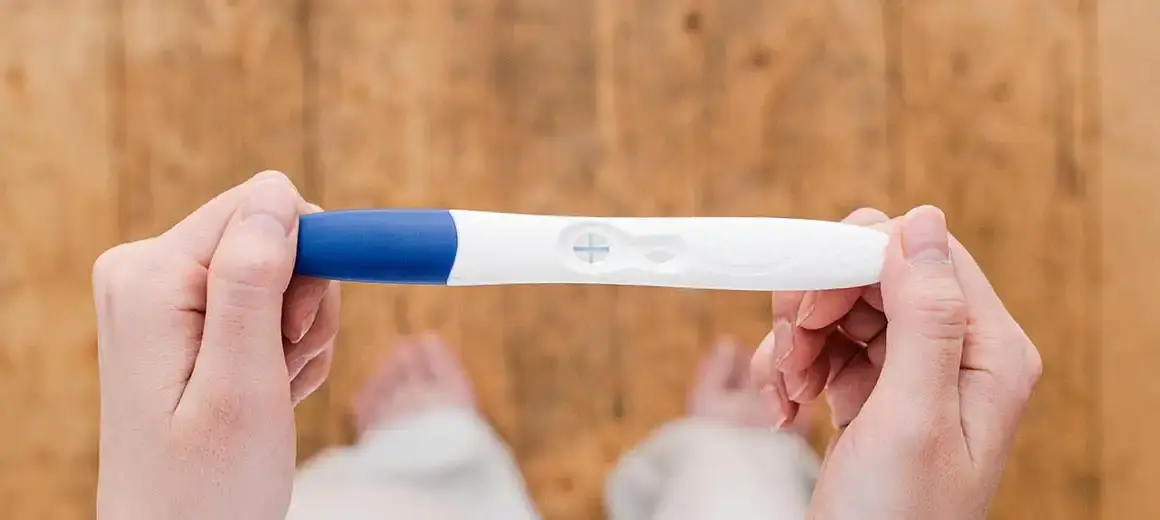How To Know If You Are Ovulating With PCOS?

- August 11, 2022
- by The Ginger-U Team
One in ten women in the US suffers from polycystic ovarian syndrome (PCOS). It means they suffer from occasional or no ovulation, which causes irregular periods, weight gain, hirsutism, and difficulty conceiving. However, treatment helps with these issues, and many women start ovulating when they take steps to manage PCOS. Before discussing whether you are ovulating with PCOS, let us begin with the basics.
What Is Ovulation?
Ovulation refers to the ovaries releasing an egg to prepare women’s body for pregnancy. It occurs mid-cycle, i.e., on the 14th day of the 28-day cycle. Each month, the follicle-stimulating hormone causes follicles in one of a woman’s ovaries to mature between days six and fourteen of the menstrual cycle. When the 14th day of the menstrual cycle arrives, the luteinizing hormone rises and causes the ovary to release its egg. The egg starts its five-day passage through the fallopian tube to the uterus. As the egg passes through the fallopian tube, the progesterone level rises, which makes the uterine lining ready for pregnancy.
What Is The Link Between Ovulation And PCOS?
Women with polycystic ovary syndrome, or PCOS, suffer from an imbalance of hormones. It causes the ovaries to enlarge and develop cysts on the outer edges of the ovaries. These cysts inhibit the maturation and release of eggs (ovulation) every month, leading to irregular periods, fertility issues, and other health problems.
Do Women With PCOS Ovulate?
They do. However, quite irregularly. That is why lifestyle changes and medication are essential to reestablishing healthy ovulation. Dietary supplements may also help reset and regularize the ovulation cycle. However, getting ovulation and the menstrual cycle back on track is not a one-night miracle. It takes time. Consequently, many women stay focused on the status of their ovulation cycle even after starting the treatment for PCOS. Tracking your monthly cycle is the solution to this problem, especially when trying to conceive.
How To Track Ovulation With PCOS?
A lot of women wonder “how to predict ovulation with PCOS?” Using an mhealth app to track your monthly cycle is one way. It automatically predicts the day of ovulation once you enter the basic details, for example, last period, length of cycle, type of period flow (light, medium, heavy), etc. Besides, the following methods can also help you know if you are ovulating.
1. Basal body temperature (BBT) measurement
Monitor your body temperature daily after waking up. Women experience an increase of about 0.5 degrees Fahrenheit after ovulation. This rise in BBT stays constant for at least three days.
2. Luteinizing hormone (LH) test
A surge in LH in urine indicates that ovulation is around the corner. It is indicated by a color change on the over-the-counter available predictor kits. Conduct this test mid-cycle. If the results show a spike in LH, ovulation should occur within 24 to 40 hours.
3. Progesterone level test
Progesterone, a female sex hormone, shoots up after ovulation. So, a simple blood test one week after the mid-cycle phase can predict if you have ovulated.
4. Transvaginal ultrasound
A more accurate option is to visit your gynecologist and get a transvaginal ultrasound. This imaging test is performed in the middle of your cycle and detects a dominant follicle (ovarian cyst with an egg inside). The image also helps your doctor see if the uterine lining formation is going the correct way.
Ovulation is a crucial stage of a healthy menstrual cycle. If your periods are on and off or you are facing pregnancy-and-PCOS-linked issues, contact an OBGYN at the earliest.

Comment